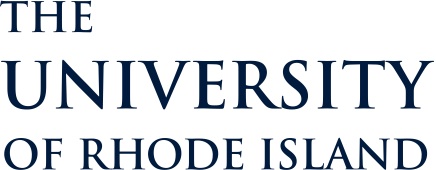Newswise — KINGSTON, R.I. – Nov. 26, 2013 – People who don’t have health insurance are often forced to seek treatment at hospital emergency rooms for colds, body aches and other routine illnesses. Those visits cost patients, hospitals and taxpayers millions of dollars every year.
A University of Rhode Island professor who founded a free health clinic in Providence has spearheaded a study that suggests walk-in clinics staffed mostly by nurses and student volunteers are a cost-efficient alternative to emergency rooms.
The study at Clinica Esperanza/Hope Clinic, a free medical clinic in one of the poorest neighborhoods in Providence, reveals that its walk-in CHEER Clinic staffed by nurses will save $1.28 million in future health care costs. The report was recently published in the Journal of Community Health.
CHEER clinic was established in August 2012 to treat non-urgent health problems such as colds, the flu, stomach illnesses, urinary tract infections, and skin problems. CHEER, or Clinica Esperanza/Hope Clinic Emergency Room Diversion, also provides flu shots and other vaccinations.
The study examined information from 256 patients during CHEER’s first five months in operation. Every service received a score representing how much money would be saved on preventive care in the future.
“When we incorporated the value of preventive services, we found an estimated savings of $1.28 million in future health care costs,’’ says Dr. Annie De Groot, the clinic’s volunteer medical director and URI’s research professor and director of the Institute for Immunology and Informatics. “From there, we calculated a return on the investment of $34 per $1.’’
About 7 percent of the more than 129 million visits to emergency rooms in the United States in 2010 were not urgent. People without insurance were also more likely than people with insurance to visit emergency rooms for non-urgent care because they did not have access to primary care.
“With this alarming increase in ER use and the rising costs of health care, we feel strongly that communities could benefit greatly by providing increased access to non-urgent health services for the uninsured,’’ De Groot says. “Following the CHEER model could result in improved health outcomes for those deeply affected by disparities in the system – and reduce health care spending.’’
Located at 60 Valley St., in the Olneyville neighborhood in Providence’s West End, Clinica Esperanza/Hope Clinic offers treatment for chronic conditions such as diabetes, high blood pressure and high cholesterol.
Other services include a clinic for women, diabetes support groups, and healthy lifestyle and nutrition education programs. The clinic only serves uninsured people who do not have a primary care doctor. The primary care clinic sees continuing patients Tuesday and Thursday nights from 5 to 9 p.m. The walk-in CHEER clinic for uninsured patients is open Monday through Friday from 2 to 7 p.m.
"As an aspiring physician, I consider my work with the clinic to be the most significant undertaking of my undergraduate career in terms of the clinic's success and the invaluable experience gained,’’ says URI biochemistry and Chinese language student Adam Silva ’15, of Newport, who worked on the research paper and volunteers at the clinic. “I hope to continue working at the clinic to improve patient health for as long as I’m able."
Blue Cross & Blue Shield of Rhode Island and the United Way of Rhode Island support the clinic and its work. For more information about the clinic and volunteer opportunities, visit CHEER.
